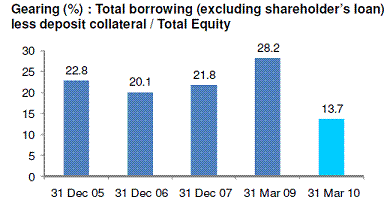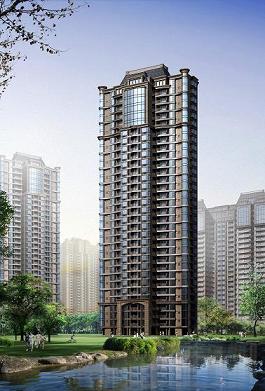
CHINA MAY BE implementing measures to cool its overheated property market, but that did not stop SGX-listed Pan Hong’s revenues from surging 10 times year-on-year.
The property developer, which has a niche in high-end residential developments in second- and third-tier cities, posted FY2010 revenues that surged 985.5% to Rmb 432.7 million.
This was in comparison to revenues of Rmb 39.9 million for the 15 months from Jan 2008 to Mar 2009, when it held back from property launches during the financial crisis. (Its financial year-end was changed from Dec to Mar in 2009.)
China’s austerity measures to rein in soaring property prices target first-tier cities rather than where Pan Hong’s developments are concentrated, said its executive chairman, Dr Wong Lam Ping, during a telephone interview with NextInsight last week after the results announcement.
Dr Wong interpreted the central government’s policy statement of “curbing the property market where it is overheated” to refer to the first-tier cities.
He elaborated that the government stance of “spurring healthy development of the property market” will benefit second and third tier cities where urbanization is taking place rapidly.
Housing transaction volumes in second tier cities may be affected when austerity measures are implemented, but real estate prices have historically rebounded strongly and kept a steady up trend, added Dr Wong, who has been developing property in these cities for two decades.
For this reason, he is quite certain that Pan Hong will not follow drop launch prices when the large property developers with developments in first tier cities start to do so.
As a market leader for high-end residences in second-tier cities such as Nanchang, Huzhou, Fuzhou and Yichun, it is in a position to influence its own property launch prices, he said.
Property demand and prices are inelastic in second-tier cities due to the high proportion of homebuyers versus speculators, he said.
The company suffered a loss of Rmb 37.0 million for the 15 months to Mar 2009, but reversed the loss and posted net profits attributable of Rmb 171.5 million for FY2010.
”We sold most units before the market cooling measures were implemented by the central government,” said Dr Wong.
Big cash balance, and big landbank
Commercial units launched recently are not affected by the austerity measures.
Such units contributed about 3% to FY2010 revenues but this will increase to slightly less than 30% in the coming 2 years, he said.
Cash balances and pledged bank balances improved 35% to Rmb 304.7 million as at 31 Mar 2010, compared to Rmb 225.5 million as at 31 Mar 2009.
”Our landbank is substantial enough to allow us to launch new developments over the next 2 to 3 years,” said Dr Wong.
Monies received for residential units sold but not handed over (pre-sales value) amount to Rmb 697.6 million, about two-thirds more than FY2010 revenues.
These projects are on schedule to be completed by the second calendar quarter of 2010, or 1Q2011.
The company declared a dividend of 0.5 Singapore cents per share, translating to a dividend yield of 1% based on its last closing price of 50 cents.
Related story: PAN HONG chairman: No property bubble in 2nd tier Chinese cities







